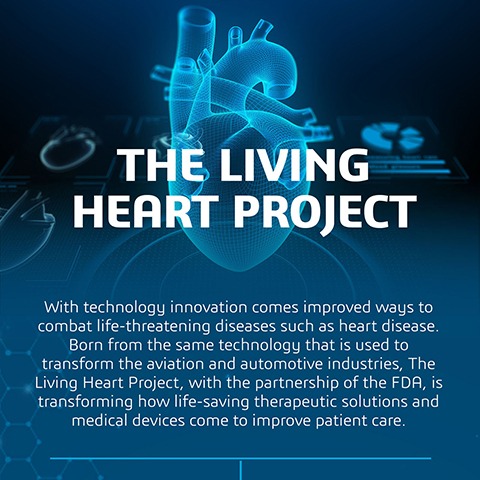Dassault Systèmes, a France-based 3D digital software solutions provider, has extended its partnership with the US Food and Drug Administration (FDA) for five years.

Image: Dassault’s extension of collaboration with the FDA marks the second phase of ongoing partnership. Photo: Courtesy of copyright Dassault Systèmes.
Dassault said that its 3DEXPERIENCE platform is capable of being used to develop a new digital tool that enables efficient regulatory review of cardiovascular and medical devices.
In addition, the advanced process is set to boost the industry innovation and help patients in accessing safe, effective new treatments for the heart disease.
Dassault Systèmes life sciences industry vice president Claire Biot said: “Our collaboration with the FDA underscores the relevance and sustainability of digital twin experiences created with the 3DEXPERIENCE platform to test devices and drugs in scientific and medical innovation.
“Enriching technology already well-established in regulated industries such as aerospace and automotive, virtual patients support the complex development of therapies for the heart, brain and more by eliminating traditional cost and time bottlenecks.”
The extension of collaboration with the FDA marks the company’s second phase of ongoing partnership, to support the 21st Century Cures Act, using virtual patients based on computational modelling and simulation to improve efficiency of clinical trials for new device designs.
The project evaluates the use of heart simulation as a source of digital evidence for new cardiovascular device approvals, with help of the Living Heart simulated 3D heart model.
In addition, the project includes an in silico clinical trial designed to reduce animal testing or the number of patients required, and simultaneously ensuring safety and efficacy of the device is validated.
FDA Centre for Devices and Radiological Health applied mechanics division deputy director Tina Morrison said: “Modeling and simulation can help to inform clinical trial designs, support evidence of effectiveness, identify the most relevant patients to study, and assess product safety.
“In some cases, in silico clinical trials have already been shown to produce similar results as human clinical trials. The FDA continues to encourage research to facilitate the introduction of safe and effective therapeutic solutions.”
